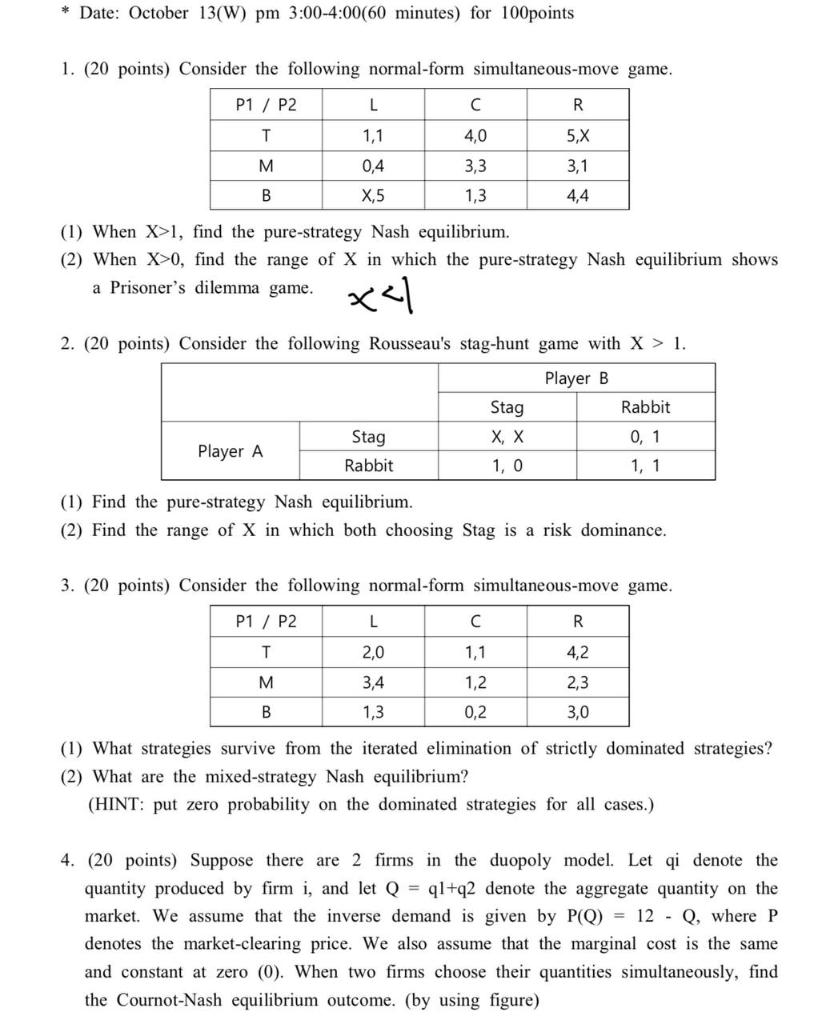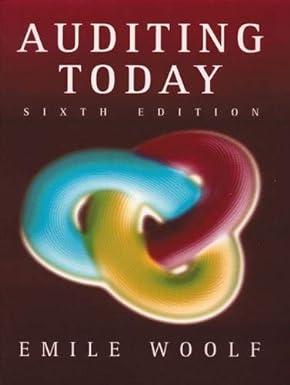
1. ( 20 points) Consider the following normal-form simultaneous-move game. (1) When X>1, find the pure-strategy Nash equilibrium. (2) When X>0, find the range of X in which the pure-strategy Nash equilibrium shows a Prisoner's dilemma game. 1. (1) Find the pure-strategy Nash equilibrium. (2) Find the range of X in which both choosing Stag is a risk dominance. 3. (20 points) Consider the following normal-form simultaneous-move game. (1) What strategies survive from the iterated elimination of strictly dominated strategies? (2) What are the mixed-strategy Nash equilibrium? (HINT: put zero probability on the dominated strategies for all cases.) 4. (20 points) Suppose there are 2 firms in the duopoly model. Let qi denote the quantity produced by firm i, and let Q=ql+q2 denote the aggregate quantity on the market. We assume that the inverse demand is given by P(Q)=12Q, where P denotes the market-clearing price. We also assume that the marginal cost is the same and constant at zero (0). When two firms choose their quantities simultaneously, find the Cournot-Nash equilibrium outcome. (by using figure) 1. ( 20 points) Consider the following normal-form simultaneous-move game. (1) When X>1, find the pure-strategy Nash equilibrium. (2) When X>0, find the range of X in which the pure-strategy Nash equilibrium shows a Prisoner's dilemma game. 1. (1) Find the pure-strategy Nash equilibrium. (2) Find the range of X in which both choosing Stag is a risk dominance. 3. (20 points) Consider the following normal-form simultaneous-move game. (1) What strategies survive from the iterated elimination of strictly dominated strategies? (2) What are the mixed-strategy Nash equilibrium? (HINT: put zero probability on the dominated strategies for all cases.) 4. (20 points) Suppose there are 2 firms in the duopoly model. Let qi denote the quantity produced by firm i, and let Q=ql+q2 denote the aggregate quantity on the market. We assume that the inverse demand is given by P(Q)=12Q, where P denotes the market-clearing price. We also assume that the marginal cost is the same and constant at zero (0). When two firms choose their quantities simultaneously, find the Cournot-Nash equilibrium outcome. (by using figure)







